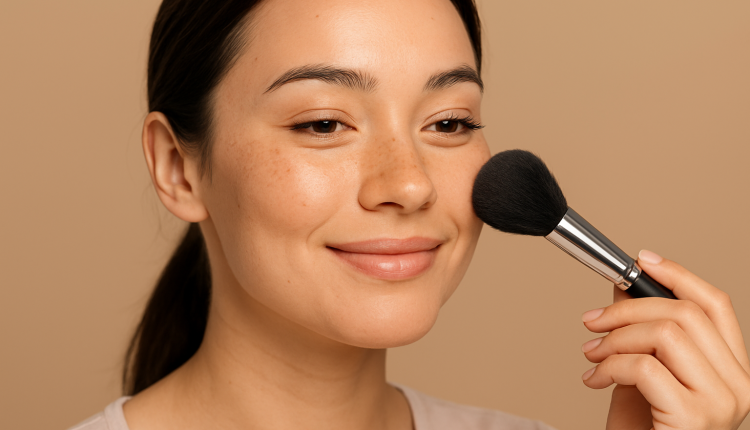In recent years, the beauty industry has witnessed a major shift in the way makeup is perceived and applied. Instead of striving for heavy coverage, bold contouring, and elaborate routines, many individuals are now embracing a more minimalistic approach. Known as skinimalism, this trend focuses on enhancing natural features with lightweight products, prioritizing healthy skin, and reducing the overwhelming complexity of traditional makeup routines.
Far from being just a fleeting fashion statement, skinimalism reflects a deeper cultural movement toward authenticity, self-acceptance, and sustainability. This article explores the rise of natural makeup, its psychological and social impact, and how it is reshaping beauty standards for a new generation.
The Origins of Skinimalism
The concept of skinimalism is rooted in a growing desire for authenticity in both beauty and lifestyle. Over the last decade, consumers have become more conscious of what they put on their skin and how it affects not only their health but also the environment. At the same time, social media, once dominated by flawless airbrushed looks, began to showcase more unfiltered images, with influencers and celebrities proudly embracing freckles, bare skin, and imperfect textures.
This movement gained momentum during the global pandemic when daily routines shifted, and many people felt less pressure to maintain full makeup looks. With less social interaction and more time at home, individuals experimented with lighter products and skincare-focused routines, leading to the widespread acceptance of minimal makeup as a valid form of self-expression.
Shifting Beauty Standards
For decades, beauty standards in media were defined by perfection—smooth skin, sculpted cheekbones, and bold features achieved through layers of products. Skinimalism challenges this narrative by emphasizing individuality and natural beauty. Rather than masking imperfections, the focus is on celebrating them as part of one’s unique identity.
This shift has also reduced the pressure on individuals to conform to unrealistic ideals. Freckles, blemishes, and natural skin textures are no longer seen as flaws to be hidden but as authentic expressions of personality. As a result, makeup has become less about transformation and more about enhancement.
The Role of Skincare in Natural Makeup
A key aspect of skinimalism is the fusion of skincare and makeup. Instead of relying solely on cosmetics for a polished look, individuals are prioritizing skin health. Products like tinted moisturizers, BB creams, and lightweight serums with added color allow users to achieve a radiant complexion without layering heavy foundation.
Additionally, hybrid products—such as moisturizers with SPF, blushes infused with skincare benefits, and multipurpose balms—have become increasingly popular. These items not only save time but also align with the minimalist philosophy of reducing clutter and using fewer products more effectively.
Psychological Benefits of Skinimalism
Embracing a natural makeup approach has profound psychological benefits. By reducing reliance on heavy cosmetics, individuals often report feeling freer and more confident in their natural appearance. This shift promotes self-acceptance and helps counter the anxiety that comes from constantly comparing oneself to unrealistic beauty standards.
Moreover, minimal makeup routines reduce the daily stress of maintaining a flawless appearance. The time saved in front of the mirror translates into more energy for other aspects of life, contributing to overall well-being.
Sustainability and the Minimalist Approach
Skinimalism is also closely tied to sustainability. By encouraging the use of fewer products, it reduces packaging waste and the environmental impact of cosmetics production. Many brands promoting natural makeup also emphasize clean ingredients, cruelty-free practices, and eco-friendly packaging.
Consumers are becoming more aware of their purchasing power, choosing quality over quantity, and supporting companies that align with ethical and sustainable practices. This eco-conscious approach resonates strongly with younger generations who prioritize both self-care and environmental care.
The Future of Makeup: Blending Minimalism with Expression
While skinimalism emphasizes simplicity, it does not mean abandoning creativity. Instead, it creates a balanced approach to makeup where natural looks can be enhanced with occasional bold accents. For instance, a bare-skin base might be paired with a striking lip color or a subtle eyeliner design.
This flexibility allows individuals to embrace minimalism without feeling restricted. Makeup becomes a tool for self-expression that can shift from understated to dramatic, depending on mood and occasion, while still staying true to the values of authenticity and individuality.
Conclusion
The rise of skinimalism marks a significant turning point in the beauty industry. By valuing natural features, prioritizing skin health, and promoting sustainability, this movement redefines what it means to be beautiful. Instead of chasing perfection, people are celebrating authenticity, individuality, and self-confidence.
Natural makeup is not about doing less—it is about doing what feels right, embracing personal identity, and allowing true beauty to shine through. As the trend continues to grow, it promises not only to reshape cosmetics but also to inspire a healthier, more authentic approach to self-image in the years ahead.


